Shortly after the 2010 midterm elections, I got a call from my friend Michael Wilt. He was working for a group of developers in Austin who were about to have their annual meeting where they expected a post-election analysis. He’d put together a great panel with Mark McKinnon, now best known for Showtime’s The Circus, and Mathew Dowd, whom you may remember as a political analyst for ABC News. Both were veterans of the Bush-Cheney White House and were there to give the view from the right. Evan Smith would be moderating, an imprimatur of gravitas on any public event in Texas. It was all lined up to be a great event, but their Democrat begged off, so would I mind filling in at the last minute?
Did I hesitate even for a second, knowing that the pro-business crowd would not be with me, that I would be up against perhaps the two most prominent Republican pundits in Texas, and that I would be having to stick up for the party that had just lost 63 seats in the House, which is like losing every congressional seat in Texas — twice? Look at me down there. I was barely 40 years old. I still had hair and was five years away from needing eyeglasses. Of course I said yes, and from then on everything changed.
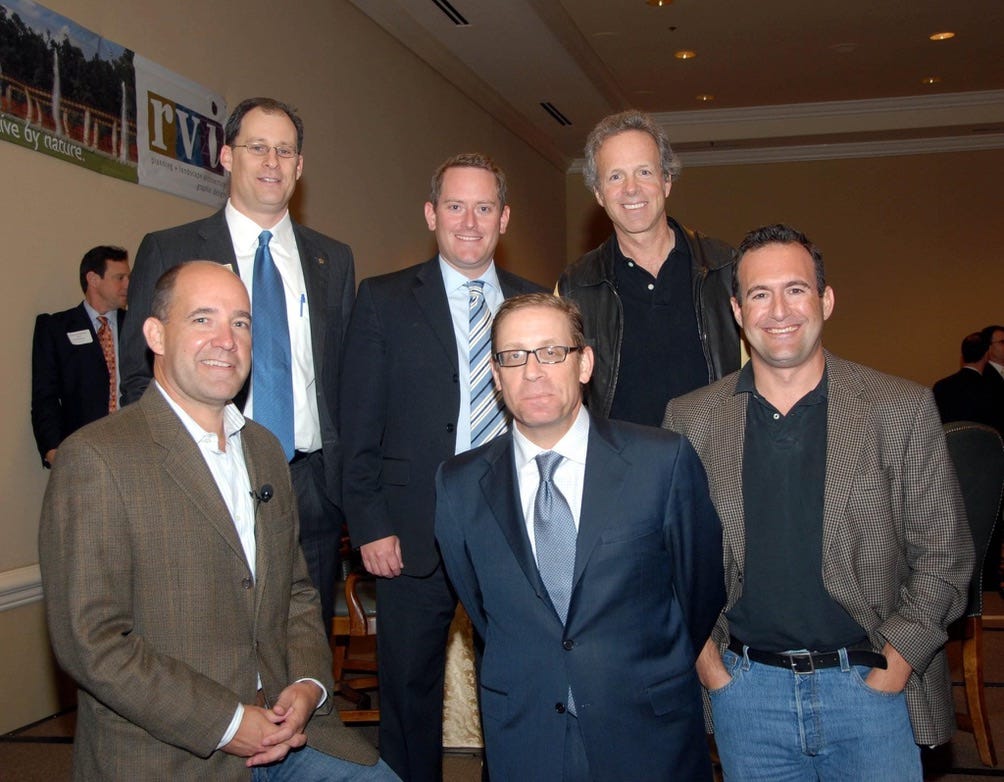
The event went well. Dowd and McKinnon — even their friends refer to them by their last names — noted that with Republicans in control of the House of Representatives and Democrats holding the Senate, President Barack Obama would need to learn the art of compromise. I countered that the Republicans’ idea of compromise was allowing Democrats to bend over and grab their own ankles. I had known both McKinnon and Dowd since I worked for them after the Ann Richards campaign when I was just 25, but I must have made a new impression on Dowd, who later took Evan aside to say that I had what it took to be a pundit.
Reader, I promise he meant it as a compliment, and so did Evan when he took me out for coffee shortly thereafter. If you don’t know Evan, imagine if P.T. Barnum and David Frost had a baby, and that baby grew up to be an award-winning magazine editor who created a new, sustainable model of public journalism called the Texas Tribune. Oh yeah, and on the side he hosts a nationally syndicated interview show on PBS. Now imagine this prominent figure invites you to a coffee shop, and while people are going about their lives ordering, I don’t know, coffee, he’s telling you that you need to be doing more with your talent.
“You need to be doing these things,” he said, ticking them off on his fingers: write a nationally syndicated column, write for Huffington Post, write a quickie book about Rick Perry, and become a pundit.
At the time, becoming a pundit was a valid career choice for political animals. The news media needs commentary from both sides of the aisle, but reporters don’t have time to call around to every operative for the smartest analysis. They pick one smart guy who will always give them a good quote. And bookers for cable news needed reliable camera-ready people who could drop whatever they were doing to go into a studio, pretend they were having a friendly conversation while looking into a camera, and provide three-sentence answers that rounded back to the host. I had friends making a few thousand dollars a month doing that. Why not me?
I didn’t even give it a second thought. I wish I had.
Evan’s advice broke a dam in me. I co-wrote a quickie book about Perry, whose presidential prospects got us a nice book deal after a flattering bidding war. I started writing a nationally syndicated column, a blog for Huffington Post, and paid analyses for MSNBC.com, and soon the network had me on air regularly. Add to that a twice-weekly gig for a local network affiliate blah-blahing against a local Republican about literally whatever was on the news that day, as well as a monthly column for the local paper. Campaign consulting held less interest for me than in verbally sparring about politics on live television, and I had a knack for the snarky line and a withering reaction shot.
I’m embarrassed to admit how good it felt. I may have demurred when someone walked out of a restaurant to pay me a compliment, but I’ve never forgotten it. A friend who worked in a mental health facility said a patient had developed a crush on me and would angrily shush people when I appeared on TV. I filed that away in the hidey hole where my sense of self-worth should have been. Some of the gigs were paid, most weren’t, but before, I was a political consultant who worked behind the scenes. Suddenly, I was one of the people that got calls from Vanity Fair, The Atlantic, and Politico. If I didn’t know any better I’d have felt like I was somebody important, not a big deal exactly, but as if I mattered. Reader, I did not know any better.
There were, and are, a lot of people doing what I did. Some get paid, most don’t. Not everyone used television cameras as an emotional crutch like I did. Most of the partisan pundits you see on TV are saying what they believe to be true, and when they’re not they are at least defending a cause they believe in. I always hated it when people said that I was only saying something because I was a Democrat. No kidding, Jacko. What most pundits are saying comes from a place of sincere conviction even if it is complicated by inconvenient truths and unmet emotional needs.
But it all means nothing.
After four years, I was exhausted from having what I was realizing were pretend arguments staged for entertainment on the news. I was filler offering calorically empty insight. I doubt I had said anything in four years that had resulted in anyone understanding their world better, much less in persuading anyone to the rightness of my opinion, and nor do I think I was expected to. I was there not just as filler but to fill the Democratic slot, arguing with the one filling the Republican slot.
The expert panels you see on cable news are largely the same, featuring telegenic partisans sitting on barstools having entirely predictable arguments. At best, the analysis lapses into theater criticism, such as how well or poorly someone came across and what impact that is likely to have on the course of human events. They rarely talk about the substance of things because these pundits (and again, I was one of them for so long, and so thirstily) are not substantive people.
Here’s a partial list of topics I was expected to comment on: a fire at a garment factory in Malaysia, North Korean nuclear capabilities, deterring Russia’s military, and the federal government’s role in incubating new technologies. Here’s a complete list of my qualifications to talk about these topics: I majored in Russian in college.
Once I was asked to debate nullification, or the constitutional theory that individual states can invalidate federal laws or judicial decisions they deem unconstitutional, in the context of the senate refusing to consider, much less confirm, Obama’s appointees to an important appellate court. Sure, no problem, I said. Then I googled “nullification.” I really had to lean into the schtick for that one, though I did get off a line so good that Rachel Maddow used it in the intro for her show later that night. My thesis adviser emailed me about that. She was very proud of me.
The problems with political panels on the news is two-fold: first, to paraphrase Logan Roy, pundits are unserious people discussing serious topics. If the news of the day is about the president lifting some policy concerning refugees seeking asylum here, why not seek the insight of a professor with deep knowledge of the border, an immigration attorney, or — this is going to sound nuts — an actual refugee? I get it, calling me was easy because I said yes, but were the viewers well-served by Captain Grumpyface telling them that it was the Republicans’ fault no matter what “it” was?
That leads to something I touched on last weekend — look at me quoting myself like a puffed-up little pundit — that looking at everything through a political lens distorts reality. Is there a political angle to what happens at the border? Sure, but does having a staged political I’m-rubber-you’re-glue debate helped a single viewer understand the border better? No.
Turns out your mom was right. Television really does rot your brain, but it’s not cartoons. Cable and network news has a lot of challenges as it shifts to streaming. But I don’t hear anyone suggesting the one thing that will instantly and dramatically improve the quality of television news: replace pundit panels with subject-matter experts.
That isn’t to say that everything Evan advised me to do caused me to re-examine if how I was spending my time was an investment or a waste. Writing turned out to be fun, and more than that deeply meaningful. I stopped writing political columns when I entered public service. But that left me more time to co-write a book and this newsletter where I try to examine ideas I’m curious about. After a long time pretending everything was a political problem that desperately needed me to weigh in on, it’s a relief to seek the actual meanings of things, and it’s a blessing to be able to share it with you.
So thanks for that.
Jason Stanford is the co-author of NYT-best selling Forget the Alamo: The Rise and Fall of an American Myth. His bylines have appeared in the Washington Post, Time, and Texas Monthly, among others. Email him at jason31170@gmail.com.
Further Reading
We set up a merch table in the back where you can get T-shirts, coffee mugs, and even tote bags now. Show the world that you’re part of The Experiment.
We’ve also got a tip jar, and I promise to waste every cent you give me on having fun, because writing this newsletter for you is how I have fun.
Buy the book Texas Lt. Gov. Dan Patrick banned from the Bullock Texas History Museum: Forget the Alamo: The Rise and Fall of the American Myth by Bryan Burrough, Chris Tomlinson, and myself is out from Penguin Random House. The New York Times bestseller is 44% off and the same price as a paperback now!




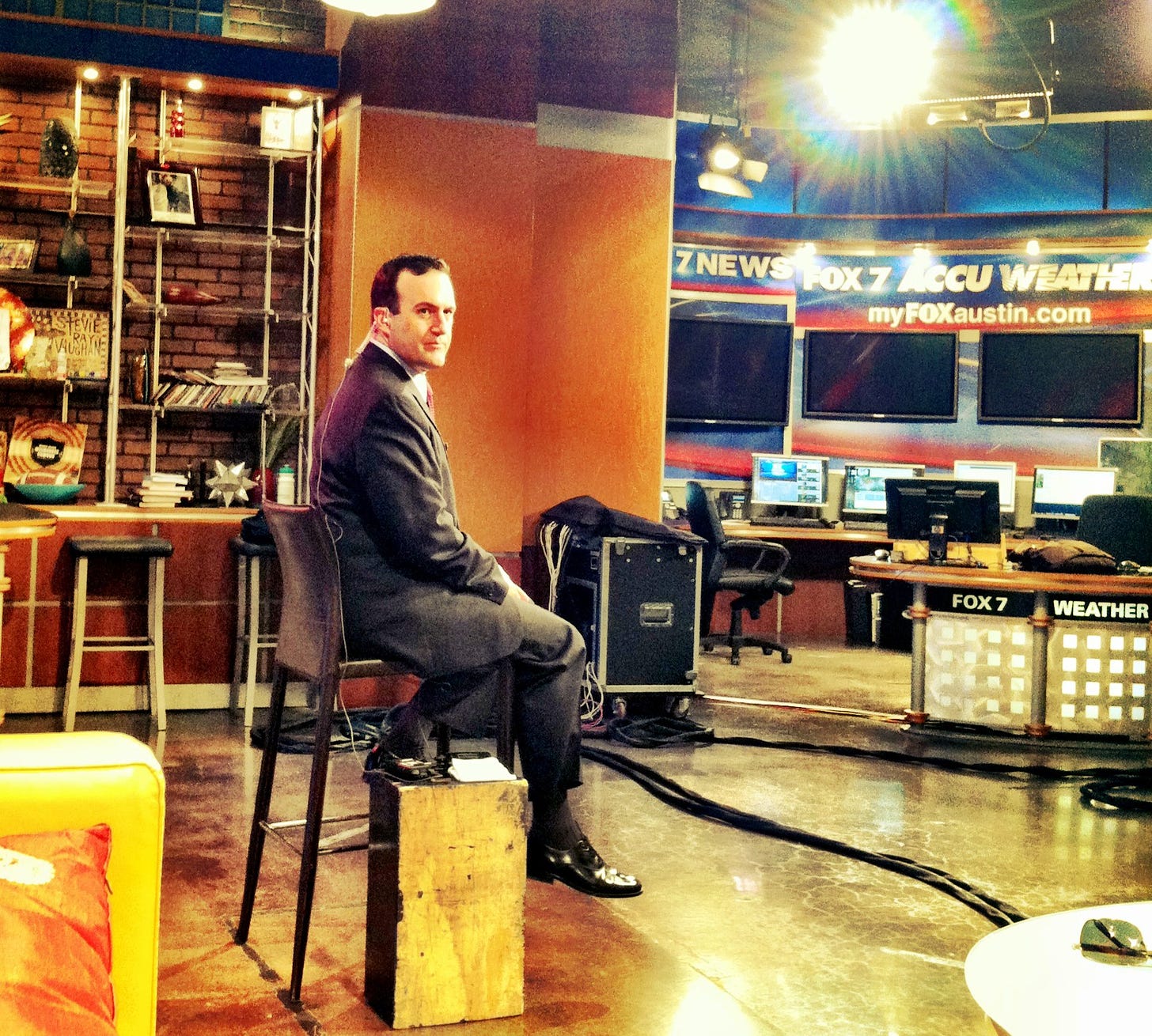
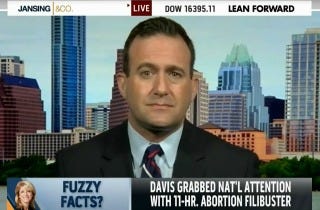
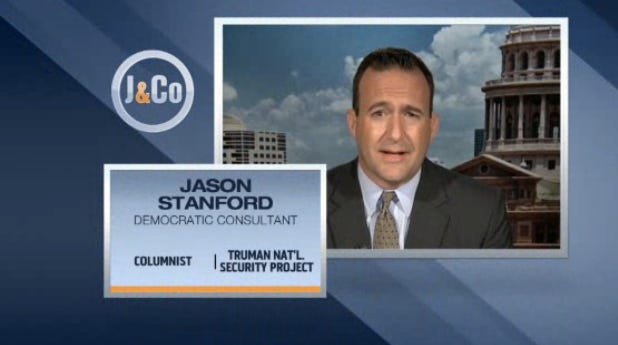
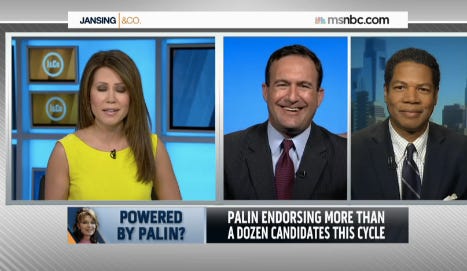
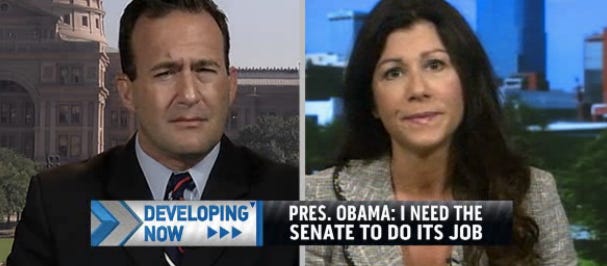
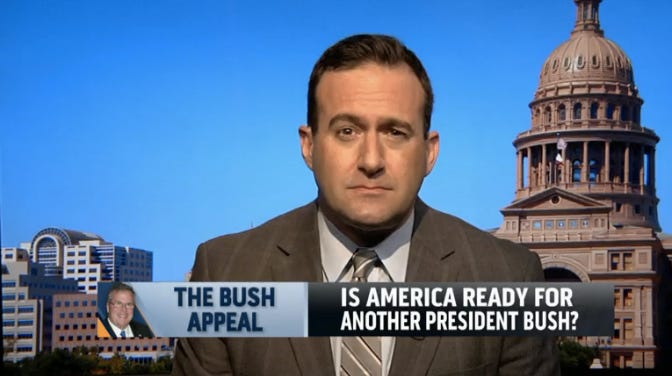
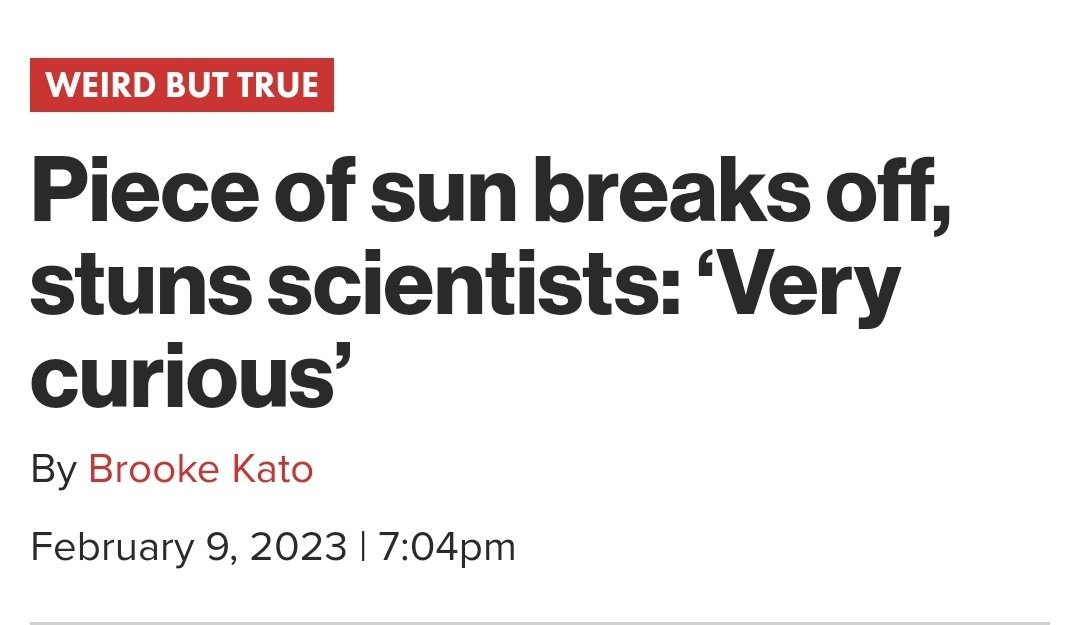
I really enjoyed this one too. Thanks for educating me, often.
Good piece. It’s a really weird form of tv entertainment, isn’t it?